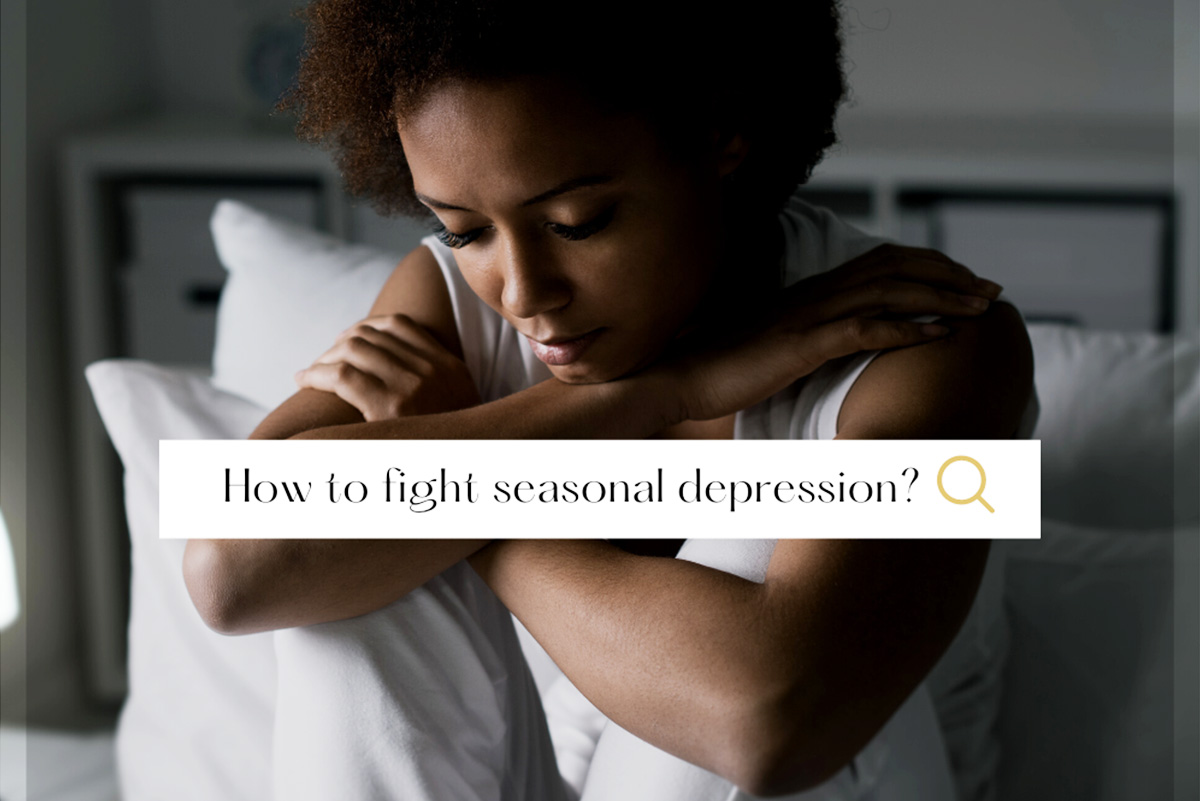Winter Blues: How to Manage the Effects of Seasonal Depression
January 25, 2023Many have heard of seasonal depression, but what does it actually mean?
About 5% of adults in the United States experience Seasonal Affective Disorder, or SAD (1). It typically begins during young adulthood and affects women more than men. Seasonal Affective Disorder is a form of depression that begins when the seasons change, typically during the fall season when daylight hours shrink and the weather grows colder and cloudier.
It will continue through the winter and come to an end once warm and sunny spring weather arrives. Many individuals experience a mild version of this disorder called “the winter blues,” but SAD goes beyond this. Unlike the winter blues, Seasonal Affective Disorder can interrupt your daily life, including how you feel and think (1).
Who Is at Risk of Seasonal Depression?
Seasonal affective disorder is more common in younger adults and females. An individual can also be at higher risk if they:
- Have an additional mood disorder
- Have relatives with this disorder or other forms of depression/mental health conditions
- Live in latitudes far north or south from the equator due to less sunlight during the winter in these areas
- Live in cloudy regions
Symptoms of Seasonal Affective Disorder
Seasonal Affective Disorder is classified as a major depressive disorder with seasonal patterns (1). An individual with seasonal affective disorder will have mood changes and symptoms of depression including:
- Sadness
- Anxiety
- Trouble concentrating
- Feeling irritated or agitated
- Loss of interest in exciting or inciting activities
- Sleeping problems (typically oversleeping)
There are no exact known reasons for seasonal depression. Some researchers believe the lack of sunlight may trigger the disorder. Other theories include:
- Biological clock change: Less sunlight causes the biological clock to shift and cause an imbalance in the daily schedule you have been used to.
- Brain chemical imbalance: Due to lack of sunlight, serotonin cannot be effectively regulated within the body. This can make serotonin levels fall and make it harder for the individual to feel happier.
- Vitamin D deficiency: Sunlight helps produce vitamin D, but less sun during the winter months can lead to a deficiency. This change can affect serotonin levels and overall mood.
Your Primary Care Provider Can Help You & Your Mental Health
It can be a challenging process to take on your mental health by yourself. Speak to a trusted health professional, such as a primary care provider (PCP), to help you address these concerns. A primary care provider can serve as a source to speak to and provide you with initial screenings. It is important to share your thoughts with your physician to get help early.
Need a Primary Care Provider? Fill out the form and we'll connect you with a provider.
Citations
Cleveland Clinic. (2022, April 10). Seasonal Depression (Seasonal Affective Disorder). Cleveland Clinic. Retrieved January 24, 2023, from https://my.clevelandclinic.org/health/diseases/9293-seasonal-depression




